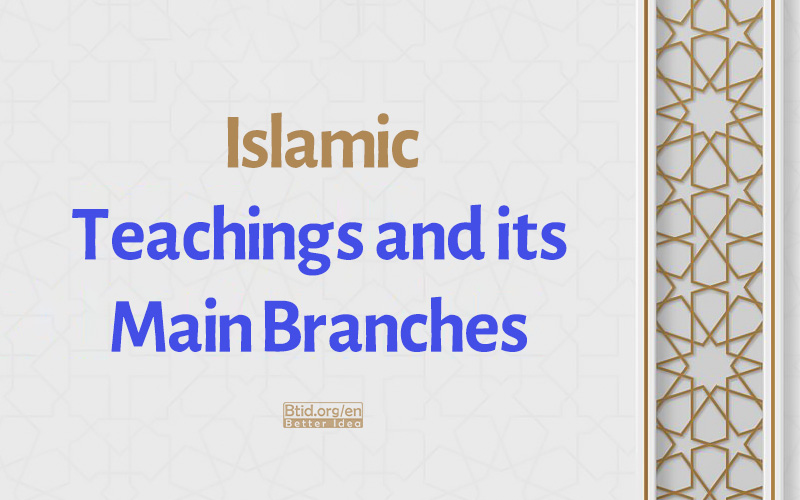- Islamic education is a collection of teachings that God has sent to mankind through his last ambassador and messenger, Prophet Muhammad (pbuh) and his rightful successors, who are the infallible Imams (pbuh).

Islamic teachings include three categories
(Introducton to Ahkam (Islamic Rules)
1. Islamic Beliefs (Aghayed):
It is those beliefs that must be believed in, according to Islam. Like the principles of religion (Monotheism (Tawheed), Justice (Adl), Prophethood (Nobowat) , Imamate, Resurrection (Ma’ad).
2. Islamic Rules (Ahkam):
It is a set of rules and guidelines that a Muslim must act within. Like the branches of religion (prayer, fasting, zakat, khums, hajj, jihad, enjoining the good, forbidding the evil, Tawalli, Tabarri).
3. Islamic Ethics:
It is a set of behaviors that Islam has ordered. In other words, it is a moral that is within the framework of Islam.
Islamic ethics regulates human relations in three main parts:
A: Regulating the person's relationship with God:
There are things that Muslims should do before God. Such as: prayer, fasting, and...
B: Regulating the relationship with God's creation: It is a person's dealings with God's creatures. This one is also divided into three parts:
- Regulating the relationship with other human beings.
- Regulating relationship with animals.
- Regulating the relationship with the environment and nature.
C: Regulating the relationship with oneself: the framework of human behavior with him/herself. Such as: jealousy, how to eat and...
Morality is so important in Islam that the Holy Prophet (PBUH) said: “I have been chosen and sent to people for carrying out the noble behavior”.[1]
From this hadith, it can be inferred that Beliefs (Aghayed) and Rules (Ahkam) are prerequisites that should bring a person to Morality. The most important thing is to regulate the relationship between man and God. A believer must reach a place where he disappears in his God. Or, in the interpretation of the Qur'an, s/he takes on “the color of God, what color is better than the color of God”.[2] Or according to the hadith of Qudsi[3] that says: “I am the one who command to exist, then it will be existed, you also obey me so that I will make you like myself, when you command to exist, then it will be existed.[4]
Click to Lesson (Two)
References:
[1] Bihar, V. 16, P. 210 إنَّما بُعِثتُ لاُتَمِّمَ مَكارِمَ الأخلاقِ
[2] Quran (1-138)... صِبْغَةَ اللَّهِ وَمَنْ أَحْسَنُ مِنَ اللَّهِ صِبْغَةً...
[3] It is God’s word which is not mentioned in the Quran
[4] Bihar, V. 93, P. 376 إنَّ اللّه َ تَعالى يَقولُ في بَعضِ كُتُبِهِ : يَا ابنَ آدَمَ! أنَا حَىٌّ لا أموتُ . أطِعني فِيما أمَرتُكَ حَتّى أجعَلَكَ حَيّا لا تَموتَ . يَابنَ آدَمَ! أنَا أقُولُ لِلشَّيءِ : كُن ، فَيَكونُ ، أَطِعني فيما أمَرتُكَ أجعَلكَ تَقولُ لِلشَّيءِ : كُن ، فَيَكُونُ



